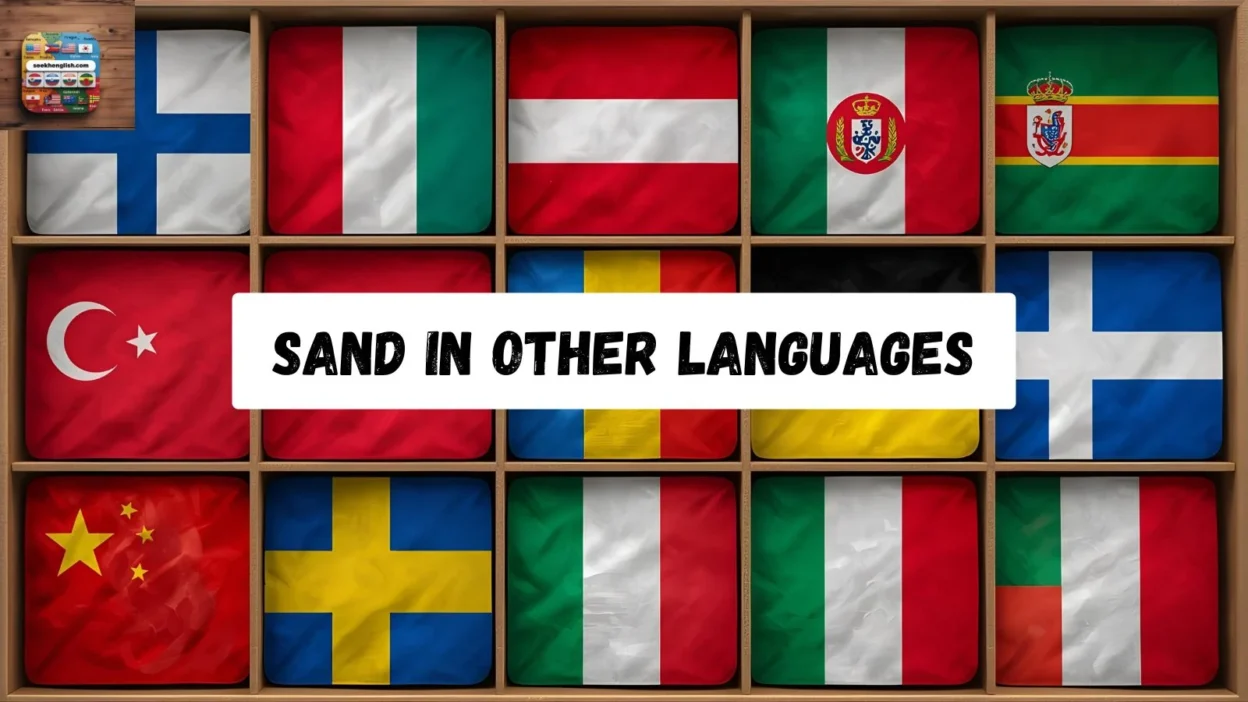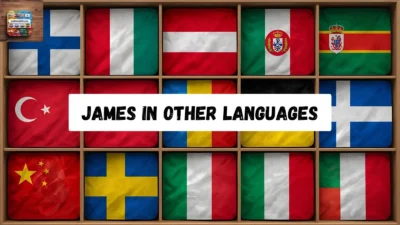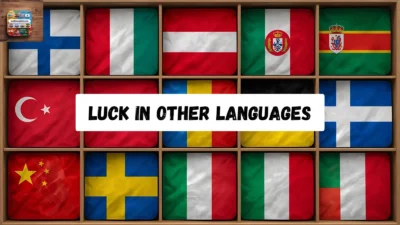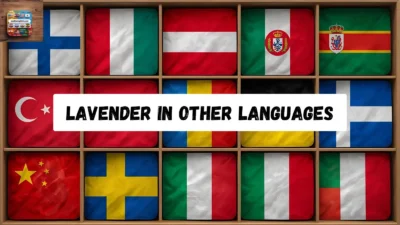When people search for “sand in other languages”, they usually want to learn how this common word is expressed across different cultures and tongues. Sand is a universal part of our environment—it covers beaches, deserts, and riverbanks. Knowing how to say sand in multiple languages can help travelers, writers, language learners, and even poets who want to use this word beautifully in different contexts.
In this guide, you’ll find 650+ translations of “sand” in other languages with pronunciation and example sentences. This makes it easy to use the word when speaking with locals, writing creative pieces, or simply expanding your vocabulary.
How to Say Sand in 650 Different Languages
1. Afrikaans (🇿🇦) – sand | Pronunciation: sand Example: Die kinders speel in die sand. (“The children are playing in the sand.”)
2. Albanian (🇦🇱) – rërë | Pronunciation: reh-ruh Example: Plazhi ishte plot me rërë. (“The beach was full of sand.”)
3. Amharic (🇪🇹) – አሸዋ (ashewa) | Pronunciation: ah-sheh-wah Example: በባሕር ዳርቻ አሸዋ አገኘን። (“We found sand on the beach.”)
4. Arabic (🇸🇦) – رمل (raml) | Pronunciation: rah-mel Example: الرمل يغطي الصحراء. (“The sand covers the desert.”)
5. Armenian (🇦🇲) – ավազ (avaz) | Pronunciation: ah-vaz Example: Երեխաները ավազի մեջ խաղում էին։ (“The kids were playing in the sand.”)
6. Azerbaijani (🇦🇿) – qum | Pronunciation: koom Example: Çimərlikdə çoxlu qum var. (“There is a lot of sand on the beach.”)
7. Bangla (🇧🇩) – বালি (bali) | Pronunciation: baa-lee Example: বাচ্চারা বালিতে দুর্গ বানাচ্ছে। (“The children are building a castle in the sand.”)
8. Basque (🇪🇸) – hondar | Pronunciation: hon-dar Example: Hondartzan hondar asko zegoen. (“There was a lot of sand on the beach.”)
9. Belarusian (🇧🇾) – пясок (pyasok) | Pronunciation: pya-sok Example: Дзеці гуляюць у пясок. (“The children are playing in the sand.”)
10. Bulgarian (🇧🇬) – пясък (pyasak) | Pronunciation: pya-suhk Example: Плажът е покрит с пясък. (“The beach is covered with sand.”)
11. Burmese (🇲🇲) – သဲ (the) | Pronunciation: th-eh Example: ကလေးတွေ သဲပေါ်မှာ ကစားနေတယ်။ (“The children are playing on the sand.”)
12. Catalan (🇪🇸) – sorra | Pronunciation: soh-rah Example: La platja té molta sorra. (“The beach has a lot of sand.”)
13. Cebuano (🇵🇭) – balas | Pronunciation: bah-las Example: Ang mga bata nagdula sa balas. (“The children are playing in the sand.”)
14. Chichewa (🇲🇼) – mchenga | Pronunciation: m-chen-ga Example: Ana akusewera mu mchenga. (“The kids are playing in the sand.”)
15. Chinese – Mandarin (🇨🇳) – 沙 (shā) | Pronunciation: shah Example: 沙滩上有很多沙。 (“There is a lot of sand on the beach.”)
16. Chinese – Cantonese (🇭🇰) – 沙 (saa1) | Pronunciation: sah Example: 沙灘上有好多沙。 (“There is much sand on the beach.”)
17. Croatian (🇭🇷) – pijesak | Pronunciation: pee-yeh-sahk Example: Djeca se igraju u pijesku. (“Children are playing in the sand.”)
18. Czech (🇨🇿) – písek | Pronunciation: pee-sek Example: Pláž byla plná písku. (“The beach was full of sand.”)
19. Danish (🇩🇰) – sand | Pronunciation: san Example: Stranden var dækket af sand. (“The beach was covered in sand.”)
20. Dutch (🇳🇱) – zand | Pronunciation: zahnd Example: De kinderen spelen in het zand. (“The children are playing in the sand.”)
21. Dzongkha (🇧🇹) – བྲག་རྐྱང (drak kyang) | Pronunciation: drahk-kyang Example: བྲག་རྐྱང་ནང་བུ་མོ་ཚོ་གཡོག་བརྒྱབ། (“The children played in the sand.”)
22. English (🇺🇸) – sand | Pronunciation: sand Example: The sand on the beach was warm.
23. Esperanto (🇺🇳) – sablo | Pronunciation: sah-blo Example: La infanoj ludas en la sablo. (“The children are playing in the sand.”)
24. Estonian (🇪🇪) – liiv | Pronunciation: leev Example: Lapsed mängivad liivas. (“The kids are playing in the sand.”)
25. Filipino (🇵🇭) – buhangin | Pronunciation: boo-hahng-in Example: Maraming buhangin sa dalampasigan. (“There is a lot of sand on the shore.”)
26. Finnish (🇫🇮) – hiekka | Pronunciation: hyeh-kah Example: Lapset leikkivät hiekassa. (“The children are playing in the sand.”)
27. French (🇫🇷) – sable | Pronunciation: sah-bluh Example: Les enfants jouent dans le sable. (“The children are playing in the sand.”)
28. Galician (🇪🇸) – area | Pronunciation: ah-reh-ah Example: A praia estaba chea de area. (“The beach was full of sand.”)
29. Georgian (🇬🇪) – ქვიშა (kvisha) | Pronunciation: kvee-sha Example: ბავშვები თამაშობდნენ ქვიშაში. (“The children were playing in the sand.”)
30. German (🇩🇪) – Sand | Pronunciation: zahnd Example: Die Kinder spielen im Sand. (“The children are playing in the sand.”)
31. Greek (🇬🇷) – άμμος (ammos) | Pronunciation: ah-mos Example: Η παραλία είχε πολύ άμμο. (“The beach had a lot of sand.”)
32. Gujarati (🇮🇳) – રેત (ret) | Pronunciation: reht Example: બાળકો રેત માં રમતા હતા. (“The children were playing in the sand.”)
33. Haitian Creole (🇭🇹) – sab | Pronunciation: sahb Example: Timoun yo ap jwe nan sab. (“The kids are playing in the sand.”)
34. Hausa (🇳🇬) – yashi | Pronunciation: yah-shee Example: Yara suna wasa cikin yashi. (“The children are playing in the sand.”)
35. Hawaiian (🇺🇸🌺) – one | Pronunciation: oh-neh Example: Keiki e pāʻani ana i ka one. (“The kids are playing in the sand.”)
36. Hebrew (🇮🇱) – חול (chol) | Pronunciation: khol Example: הילדים שיחקו בחול. (“The children played in the sand.”)
37. Hindi (🇮🇳) – रेत (ret) | Pronunciation: reht Example: बच्चे रेत में खेल रहे हैं। (“The children are playing in the sand.”)
38. Hmong (🇨🇳) – xuab zeb | Pronunciation: shoo-ahb zehb Example: Cov menyuam tab tom ua si hauv xuab zeb. (“The kids are playing in the sand.”)
39. Hungarian (🇭🇺) – homok | Pronunciation: hoh-mohk Example: A gyerekek a homokban játszanak. (“The children are playing in the sand.”)
40. Icelandic (🇮🇸) – sandur | Pronunciation: san-dur Example: Börnin leika sér í sandinum. (“The children are playing in the sand.”)
41. Igbo (🇳🇬) – ájà | Pronunciation: ah-jah Example: Ụmụaka na-egwu na ája. (“The children are playing in the sand.”)
42. Indonesian (🇮🇩) – pasir | Pronunciation: pah-seer Example: Anak-anak bermain di pasir. (“The children are playing in the sand.”)
43. Irish (🇮🇪) – gaineamh | Pronunciation: guy-nyav Example: Bhí na páistí ag imirt sa gaineamh. (“The children were playing in the sand.”)
44. Italian (🇮🇹) – sabbia | Pronunciation: sahb-bya Example: I bambini giocano nella sabbia. (“The children are playing in the sand.”)
45. Japanese (🇯🇵) – 砂 (suna) | Pronunciation: soo-nah Example: 子供たちは砂で遊んでいます。 (“The children are playing in the sand.”)
46. Javanese (🇮🇩) – wedhi | Pronunciation: weh-dhee Example: Bocah-bocah padha dolanan ing wedhi. (“The children are playing in the sand.”)
47. Kannada (🇮🇳) – ಮರಳು (maralu) | Pronunciation: mah-rah-loo Example: ಮಕ್ಕಳು ಮರಳುಯಲ್ಲಿ ಆಡುತ್ತಿದ್ದಾರೆ. (“The kids are playing in the sand.”)
48. Kazakh (🇰🇿) – құм (qum) | Pronunciation: koom Example: Балалар құмда ойнап жүр. (“The kids are playing in the sand.”)
49. Khmer (🇰🇭) – ខ្សាច់ (khsach) | Pronunciation: k’sahch Example: ក្មេងៗកំពុងលេងលើខ្សាច់។ (“The kids are playing in the sand.”)
50. Korean (🇰🇷) – 모래 (morae) | Pronunciation: moh-reh Example: 아이들이 모래에서 놀고 있어요. (“The kids are playing in the sand.”)
51. Kurdish (🇮🇶) – bixm | Pronunciation: bikhm Example: Zarokên di bixmê de lîstin. (“The kids played in the sand.”)
52. Kyrgyz (🇰🇬) – кум (kum) | Pronunciation: koom Example: Балдар кумда ойноп жатышат. (“The children are playing in the sand.”)
53. Lao (🇱🇦) – ຊາຍ (sai) | Pronunciation: sahy Example: ເດັກນ້ອຍກຳລັງຫຼິ້ນໃນຊາຍ. (“The children are playing in the sand.”)
54. Latvian (🇱🇻) – smiltis | Pronunciation: smil-tis Example: Bērni spēlējas smiltīs. (“The kids are playing in the sand.”)
55. Lithuanian (🇱🇹) – smėlis | Pronunciation: smyeh-lis Example: Vaikai žaidžia smėlyje. (“The children are playing in the sand.”)
56. Luxembourgish (🇱🇺) – Sand | Pronunciation: zahnd Example: D’Kanner spillen am Sand. (“The kids are playing in the sand.”)
57. Macedonian (🇲🇰) – песок (pesok) | Pronunciation: peh-sok Example: Децата играа во песокот. (“The children played in the sand.”)
58. Malagasy (🇲🇬) – fasika | Pronunciation: fah-see-kah Example: Ny ankizy milalao amin’ny fasika. (“The kids are playing in the sand.”)
59. Malay (🇲🇾) – pasir | Pronunciation: pah-seer Example: Kanak-kanak bermain di pasir. (“The kids are playing in the sand.”)
60. Malayalam (🇮🇳) – മണൽ (manal) | Pronunciation: muh-nuhl Example: കുട്ടികൾ മണൽയിൽ കളിക്കുന്നു. (“The kids are playing in the sand.”)
61. Maltese (🇲🇹) – ramel | Pronunciation: rah-mel Example: It-tfal qed jilagħbu fir-ramel. (“The kids are playing in the sand.”)
62. Maori (🇳🇿) – one | Pronunciation: oh-neh Example: Kei te tākaro ngā tamariki i te one. (“The kids are playing in the sand.”)
63. Marathi (🇮🇳) – वाळू (vaḷū) | Pronunciation: vah-loo Example: मुले वाळूत खेळत आहेत. (“The kids are playing in the sand.”)
64. Mongolian (🇲🇳) – элс (els) | Pronunciation: elss Example: Хүүхдүүд элсэнд тоглож байна. (“The kids are playing in the sand.”)
65. Nepali (🇳🇵) – बालुवा (baluwa) | Pronunciation: bah-loo-wah Example: बालबालिका बालुवामा खेलिरहेका छन्। (“The kids are playing in the sand.”)
66. Norwegian (🇳🇴) – sand | Pronunciation: sahnd Example: Barna lekte i sand. (“The kids were playing in the sand.”)
67. Odia (🇮🇳) – ବାଳୁକା (baluka) | Pronunciation: bah-loo-kah Example: ପିଲାମାନେ ବାଳୁକାରେ ଖେଳୁଛନ୍ତି । (“The kids are playing in the sand.”)
68. Pashto (🇦🇫) – شګه (shaga) | Pronunciation: shah-gah Example: ماشومان په شګه کې لوبې کوي. (“The children are playing in the sand.”)
69. Persian (🇮🇷) – شن (shen) | Pronunciation: shen Example: کودکان در شن بازی میکنند. (“The kids are playing in the sand.”)
70. Polish (🇵🇱) – piasek | Pronunciation: pya-sek Example: Dzieci bawią się w piasku. (“The kids are playing in the sand.”)
71. Portuguese (🇵🇹) – areia | Pronunciation: ah-ray-ah Example: As crianças brincam na areia. (“The children are playing in the sand.”)
72. Punjabi (🇮🇳/🇵🇰) – ਰੇਤ / ریت (ret) | Pronunciation: reht Example: ਬੱਚੇ ਰੇਤ ਵਿੱਚ ਖੇਡ ਰਹੇ ਹਨ। (“The kids are playing in the sand.”)
73. Quechua (🇵🇪) – t’uru | Pronunciation: too-roo Example: Wawaqa t’urupi pukllan. (“The child is playing in the sand.”)
74. Romanian (🇷🇴) – nisip | Pronunciation: nee-seep Example: Copiii se joacă în nisip. (“The kids are playing in the sand.”)
75. Russian (🇷🇺) – песок (pesok) | Pronunciation: pyeh-sok Example: Дети играют в песке. (“The kids are playing in the sand.”)
76. Samoan (🇼🇸) – oneone | Pronunciation: oh-neh-oh-neh Example: O tamaiti o lo’o taaalo i le oneone. (“The kids are playing in the sand.”)
77. Sanskrit (🇮🇳) – रजः (rajah) | Pronunciation: rah-juh Example: बालकाः रजसि क्रीडन्ति। (“The children are playing in the sand.”)
78. Scottish Gaelic (🇬🇧🏴) – gainmheach | Pronunciation: gan-yav Example: Bha na clann a’ cluich sa ghainmheach. (“The children were playing in the sand.”)
79. Serbian (🇷🇸) – песак (pesak) | Pronunciation: peh-sahk Example: Деца се играју у песку. (“The kids are playing in the sand.”)
80. Sesotho (🇱🇸) – lehlabathe | Pronunciation: leh-lah-bah-theh Example: Bana ba bapala ka lehlabathe. (“The kids are playing in the sand.”)
81. Shona (🇿🇼) – jecha | Pronunciation: jeh-chah Example: Vana vari kutamba mu jecha. (“The children are playing in the sand.”)
82. Sindhi (🇵🇰) – واري (wari) | Pronunciation: wah-ree Example: ٻار واريءَ ۾ کيڏي رهيا آهن. (“The kids are playing in the sand.”)
83. Sinhala (🇱🇰) – වැලි (wæli) | Pronunciation: weh-lee Example: දැරියෝ වැලියේ ක්රීඩා කළා. (“The kids played in the sand.”)
84. Slovak (🇸🇰) – piesok | Pronunciation: pyeh-sok Example: Deti sa hrajú v piesku. (“The kids are playing in the sand.”)
85. Slovenian (🇸🇮) – pesek | Pronunciation: peh-sek Example: Otroci se igrajo v pesku. (“The children are playing in the sand.”)
Conclusion
No matter where you travel, the word “sand in other languages” always connects us to nature, culture, and human experience.



